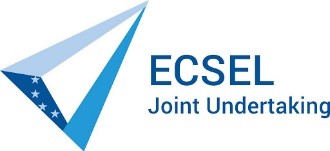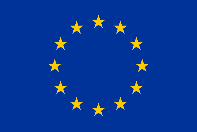Breadcrumbs navigation
The CHARM ECSEL JU project aims to develop industrial IoT solutions with an improved tolerance towards harsh industrial surroundings. Digitalisation of the European manufacturing industries is the key to their continuous renewal and competitiveness. Harsh environmental conditions in manufacturing processes and end user environment may slow down the opportunities brought by IoT (Internet of Things) and AI (Artificial Intelligence). The CHARM project is set to solve this challenge.
CHARM (Challenging environments tolerant Smart systems for IoT) is an extensive three-year project with 37 partners from 10 European countries and a total budget of 29 M€. It is co-financed via ECSEL Joint Undertaking, EU Horizon 2020, national funding agencies of the participating countries and the consortium partners. The partners come from Austria, Belgium, Czech Republic, Finland, Germany, Italy, Latvia, the Netherlands, Poland and Switzerland.
Launched in June 2020, the CHARM project will develop condition monitoring, predictive maintenance, automation, real-time manufacturing control and optimisation and virtual prototyping system demonstrators and test them in industrial settings. The ECS (Electronics, Components and Systems) technologies must be designed to withstand combinations of severe thermal, mechanical, and chemical stress present during the manufacturing processes used in the industry. Solutions will be demonstrated for six use cases that cover condition monitoring, predictive maintenance, and real-time quality assurance.
The CHARM use case leaders come from six different manufacturing sectors covering mining (Sandvik Mining and Construction Oy, FI), paper mills (Valmet Technologies Inc., FI), machining (Tornos SA, CH), solar panel manufacturing (Applied Materials Italia SRL, IT), nuclear power plant maintenance and decommissioning (ÚJV Řež, a. s., CZ) and professional digital printing (Canon Production Printing Netherlands B.V.). The project consortium consists of 11 small and mid-sized enterprises, 14 large enterprises and 12 research and technology organisations. They represent the industrial value chain from simulations, sensors and components to packaging, integration and reliability as well as connectivity, cloud and cyber security solutions.
The project will develop sensors for e.g. gas detection, high temperature and pressure, as well as advanced vision systems for real-time quality control and autonomous equipment for industrial applications. Electronics component packaging technologies beyond state-of-the-art will be used to ensure that the sensors are able to withstand the harsh conditions. The IoT systems will also include new solutions for wireless power transfer, connectivity and cybersecurity.

ÚJV Řež leads the segment for manipulator development
ÚJV Řež participates in the CHARM project as the leader of the Use Case 5 (UC5) segment, within which is being developed an innovative modular multi redundant manipulator. This equipment is designed for non-destructive inspections of components and welded joints of difficult-to-access nuclear power plant inspection points. Other cooperating partners in this segment of the CHARM project are, in addition to the University of West Bohemia in Pilsen and the Czech Smartmotion s.r.o. also European companies: TAMPEREEN KORKEAKOULUSAATIO SR (University of Applied Sciences Tampere), SSH COMMUNICATIONS SECURITY OYJ (Finland), REDEN B.V. and TECHNISCHE UNIVERSITEIT DELFT (Netherlands) and Besi Austria GmbH (Austria). At ÚJV Řež, a team of specialists from the Integrity and Technical Engineering Division specializes in solving the UC5 project. "We are pleased that thanks to participation in this prestigious project we can utilize our long-term experience with the support of nuclear operations and move the operational service of power plants to a higher level," comments Ladislav Horáček, UC5 project manager, on ÚJV Řež's involvement in the project.
More information:
Heikki Kettunen, Valmet
Email: heikki.kettunen@valmet.com
Phone: +358 40 563 2123
Consortium project partners:
Project coordinator: Valmet Technologies Inc.
aixACCT Systems, Applied Materials Italia, AT&S Austria Technologie & Systemtechnik, Beneq, Besi Austria GmbH, Besi Netherlands B.V., Canon Production Printing Netherlands B.V., Consorzio Nazionale Interuniversitario per la Nanoelettronica, CSEM Centre Suisse d'Electronique et de Microtechnique, Delft University of Technology, E+E Elektronik Ges.m.b.H., Fraunhofer Institute for Reliability and Microintegration IZM, Imec Netherlands, InnoSenT GmbH, ŁUKASIEWICZ - Instytut Technologii Elektronowej, Lapland University of Applied Sciences, Luna Geber Engineering, Materials Center Leoben Forschung GmbH (MCL), NOME, Pac Tech Packaging Technologies GmbH, Qplox Engineering, Quantavis, Reden, Riga Technical University, SAF Tehnika, Sandvik, SmartMotion, SSH Communications, Sylvac SA, Tampere University, Technische Universität Chemnitz, TIPb, Tornos SA, ÚJV Řež, a. s., University of West Bohemia, Würth Elektronik

About ECSEL JU
The “Electronic Components and Systems for European Leadership” (ECSEL) is a Joint Undertaking established in June 2014 by the European Union Council Regulation No 561/2014. The ECSEL Joint Undertaking – the Public-Private Partnership for Electronic Components and Systems – funds Research, Development and Innovation projects for world-class expertise in these key enabling technologies, essential for Europe’s competitive leadership in the era of the digital economy. Through the ECSEL JU, the European industry, SMEs and Research and Technology Organisations are supported and co-financed by 30 ECSEL Participating States and the European Union. A total of approximately 346 M€ European and national grants have been awarded to proposals with total eligible costs of about 748 M€ arising from the ECSEL JU, making another step forward in the 5 B€ programme to be supported by ECSEL JU.
https://ec.europa.eu/digital-single-market/en/ecsel

This project has received funding from the ECSEL Joint Undertaking (JU) under grant agreement No 876362. The JU receives support from the European Union’s Horizon 2020 research and innovation programme and Finland, Austria, Belgium, Czechia, Germany, Italy, Latvia, Netherlands, Poland, Switzerland.